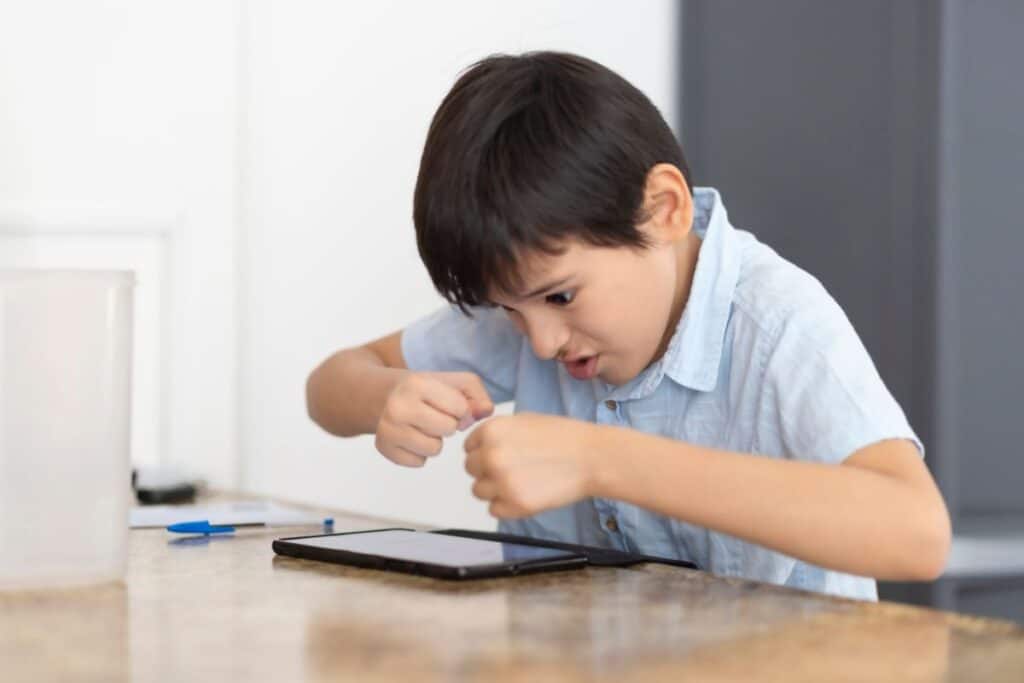Developmental delays are a big worry in early childhood. Finding them early is key to helping kids catch up. The Centers for Disease Control and Prevention (CDC) says kids should hit certain milestones by certain ages. Doctors and healthcare teams are key in spotting these delays with standardized screenings and watching kids closely.

Tests like the Denver II test help find problems early. This means we can help kids grow and develop better. By keeping an eye on kids and fixing any issues, we support their growth.
Key Takeaways
- Developmental delays are a common concern in early childhood.
- Primary care providers play a vital role in identifying developmental delays.
- Standardized screenings, like the Denver II test, are essential for early detection.
- Ongoing surveillance is vital for monitoring children’s developmental progress.
- Early identification of developmental delays allows for timely intervention.
The Critical Role of Developmental Screening
As children grow, developmental screening is key in tracking their progress. It helps spot kids who might be falling behind in development. This screening checks if a child is on the right path or if they need extra help.

What Are Developmental Delays?
Developmental delays mean a child is not growing as expected. These delays can show up in many areas. This includes cognitive development, social and emotional development, speech and language development, and fine and gross motor skills. Knowing about these delays helps us support kids better.
Why Early Detection Is Essential
Finding developmental delays early is very important. It lets us start helping kids right away. Studies show early help can greatly improve a child’s growth and well-being. We follow guidelines to screen kids at ages 9, 18, and 24–30 months for this reason.
When Screenings Typically Occur
Screenings usually happen during regular check-ups with doctors. Guidelines say kids should be checked at 9 months, 18 months, and 24–30 months. We also keep an eye on kids’ growth and changes over time with developmental monitoring.
Knowing when and why screenings happen helps us support kids better. It ensures they get the help they need to grow and succeed.
Pediatricians and Primary Care Providers
Pediatricians and primary care providers are key in spotting developmental issues in kids. They do this during routine check-ups. These visits help us keep an eye on how children are growing and tackle any problems that come up.
Routine Well-Child Visits and Surveillance
At well-child visits, doctors or nurses watch how kids behave and talk to parents about their worries. They also do simple developmental assessments. For example, they might see if a child can say certain words or do physical tasks for their age.
We also keep an eye on the kids’ growth all the time. This helps us catch any issues early and act fast. We might use a children’s test or other tools to check how well kids are developing.
Standardized Screening Procedures
We also use standardized screening procedures to find kids at risk for delays. These tests, like the Denver II Test, check kids’ thinking, moving, and talking skills.
- These tools help us spot delays early.
- Standardized tests catch issues that might not show up at regular visits.
- Acting quickly can really help kids do better.
Referral Process When Concerns Arise

If we find something to worry about, we start a referral process. This means we send the child to experts for a full developmental assessment. This could be to see a developmental-behavioural pediatrician or other specialists.
- We find kids who need more checks based on what we see.
- We send them to the right specialist or service.
- We work with the specialist to make sure the child gets the help they need.
By teaming up with parents and other healthcare teams, we make sure kids get the support they need to grow and succeed.
The Denver II Test and Other Common Screening Tools
The Denver II test is a key tool for spotting developmental delays in kids. It uses a brief test or a questionnaire for parents. These tools are vital for catching delays early and helping kids grow.
How the Denver II Test Works
The Denver II test checks a child’s skills like personal-social, fine motor, language, and gross motor. It’s for kids from birth to 6 years old. The test has tasks for the child to do, showing if they might need help.
Some tasks in the Denver II test include:
- Drawing and copying shapes
- Using blocks to show fine motor skills
- Responding to sounds and voices
- Walking, running, and jumping for gross motor skills
Ages and Stages Questionnaire (ASQ)
The Ages and Stages Questionnaire (ASQ) checks how a child is growing. It’s a set of questions for parents or caregivers at certain ages. The ASQ looks at communication, gross motor, fine motor, problem-solving, and personal-social skills.
“The ASQ is a powerful tool that empowers parents to monitor their child’s development and seek professional guidance when needed.”
Source: ASQ Website
Modified Checklist for Autism in Toddlers
The Modified Checklist for Autism in Toddlers (M-CHAT) spots early signs of autism in toddlers. It’s a questionnaire for parents about social interaction, communication, and repetitive behaviors. It’s for kids 16 to 30 months old.
Using the M-CHAT early can help a lot. It lets doctors find kids who need extra help sooner.
Developmental-Behavioral Pediatricians
Developmental-behavioral pediatricians are key in spotting and handling developmental delays. They have special training to help kids with various challenges.
Specialized Training and Expertise
These doctors get extra training beyond regular pediatrics. They learn to diagnose and manage developmental and behavioral issues. This training lets them give care that fits each child’s needs.
Comprehensive Developmental Assessments
When a delay is thought of, a detailed check is needed. Pediatricians do full tests, like standardized ones and talk with parents. These help see what the child can do and what they need help with. This info helps make plans to support the child’s growth.
“Early spotting and action are key for kids with delays. Developmental-behavioral pediatricians are vital in helping families understand and act on this.”
Treatment Planning and Coordination
After checking, these doctors help make a plan with families. This plan might include therapies and educational help. Working with other experts is important for a good plan. This teamwork helps kids get the support they need.
In short, developmental-behavioral pediatricians are very important for kids with delays. Their training helps them do detailed checks and make plans. This makes a big difference for kids and their families.
Child Psychologists and Neuropsychologists
Child psychologists and neuropsychologists play a key role in checking how kids develop. They do detailed checks to see if a child is on track or if there are any delays. These experts help us understand a child’s mind, feelings, and actions.
Cognitive and Behavioural Assessments
Checking cognitive and behavioural skills is vital. Child psychologists and neuropsychologists use tests and watch how kids act. They look at things like memory, focus, and solving problems. They also check how kids behave, interact with others, and handle emotions.
These experts watch kids over several visits. They want to see how they act and interact. This helps them understand if a child is developing as they should.
Psychological Testing Methods
There are many ways to test a child’s mind. Tests like IQ tests and scales for adaptive behaviour are common. These tests show what a child is good at and what they might need help with.
Diagnosis and Intervention Recommendations
After testing, experts give a diagnosis and suggest how to help. They might suggest therapy, extra school help, or other support. This plan is made just for the child.
We work with families and other doctors to make sure the help works. With the right support, kids can reach their full potential and live better lives.
Allied Health Professionals
Allied health professionals are key in helping kids with developmental delays. They bring special skills and knowledge. These are vital for a complete check-up and a good treatment plan.
Speech-Language Pathologists
Speech-language pathologists are vital in treating speech and language issues in kids. They use tests and observations to find out what a child can do well and what they need to work on. Then, they create plans to help improve communication skills.
They work with families and other healthcare teams. This ensures their plans fit into the child’s overall care. It helps the child communicate better.
Occupational Therapists
Occupational therapists help kids develop skills for everyday life and school. They check on fine motor skills, sensory integration, and more. These areas help kids do well at home, school, and in the community.
They make special plans for each child. This helps kids gain skills and confidence. It lets them do meaningful activities and reach their goals.
Physical Therapists
Physical therapists are important for kids with gross motor delays and physical challenges. They create exercise plans and use different techniques. This helps improve strength, flexibility, and physical function.
Through their efforts, physical therapists help kids become more independent. They can join in more physical activities. This improves their quality of life.
Early Intervention Programs and School-Based Services
We know how vital early intervention programs and school-based services are for kids with developmental delays. These services aim to support children’s growth and help them keep up with their peers.
State-Funded Early Intervention Teams
State-funded early intervention teams offer key support to kids from birth to age three with developmental delays. These teams include experts like speech-language pathologists, occupational therapists, and physical therapists. They work together to make plans that fit each child’s needs.
School District Evaluation Services
When kids start school, they can get evaluation services from their local school district. These services check if a child needs special education and create a plan just for them.
Multidisciplinary Assessment Approaches
A multidisciplinary assessment brings together a team of experts to check a child’s development. This way, they look at all parts of a child’s growth, giving a full view of their abilities and challenges.
Eligibility Determination for Services
Figuring out if a child is eligible for early intervention or special education takes a detailed assessment. Experts look at how a child is doing compared to milestones. If a child is eligible, they get services to help them grow.
Early intervention programs and school services are key in helping kids with developmental delays. They offer focused support, helping kids reach their full abilities and succeed in school.
Conclusion: Challenges and Disparities in Developmental Screening
Developmental screening is key, but big challenges and gaps exist. Only 34.8% of kids aged 9–35 months got screened in the US in 2020–21. Studies show that some groups face more issues, like those with lower education or income.
These findings point to the need for better access to screenings and support. We must strive for a fair system where every child gets the help they need. By tackling these challenges, we can ensure all kids have a chance to thrive.
FAQ’s:
What is developmental screening, and why is it important?
Developmental screening helps find kids who might be falling behind. It’s key because catching delays early means kids can get help sooner. This can really make a difference in their future.
What are the common areas of child development assessed during developmental screening?
Screenings check on a few main areas. These are thinking skills, social and emotional growth, talking and listening, and moving around.
What is the Denver II test, and how is it used?
The Denver II test is a tool to see how kids are doing. It looks at personal-social skills, fine motor, language, and big movements.
What is the Ages and Stages Questionnaire (ASQ), and how is it used in developmental screening?
The ASQ is a form that parents fill out. It checks if kids are meeting developmental milestones. It helps spot delays and track progress.
What is the Modified Checklist for Autism in Toddlers (M-CHAT), and what does it assess?
The M-CHAT is for spotting autism in toddlers. It looks at behaviours and developmental steps.
Who conducts developmental screening, and when does it typically occur?
Doctors do screenings during regular check-ups. These visits happen at 9, 18, and 24 or 30 months.
What happens if a developmental screening indicates a possible delay?
If a screening shows a delay, the doctor will send the child for more tests. Specialists like developmental-behavioural pediatricians will assess and plan treatment.
What role do developmental-behavioural pediatricians play in assessing and treating developmental delays?
These doctors are experts in delays. They do detailed checks and make plans to help kids catch up.
How do child psychologists and neuropsychologists contribute to assessing developmental delays?
These experts do tests to understand delays. They give advice on how to help kids improve.
What is the role of allied health professionals, such as speech-language pathologists, occupational therapists, and physical therapists, in addressing developmental delays?
These professionals help in many ways. They focus on specific areas like speech, motor skills, or daily tasks.
What are early intervention programs, and how do they support children with developmental delays?
Early intervention programs offer help and therapy for kids with delays. They include speech, occupational, and physical therapy to help kids keep up.
How are children determined to be eligible for early intervention services or school-based services?
A team does a detailed check to see if a child needs help. This helps make a plan to support the child’s needs.
What are the benefits of early detection and intervention for developmental delays?
Finding and helping kids early can greatly improve their future. It gives them the chance to catch up and reach their full abilities.
References:
- Frankenburg, W. K., & Dodds, J. B. (1992). The Denver Developmental Screening Test. Pediatrics, 39(10), 900-905. https://pubmed.ncbi.nlm.nih.gov/14059568/








